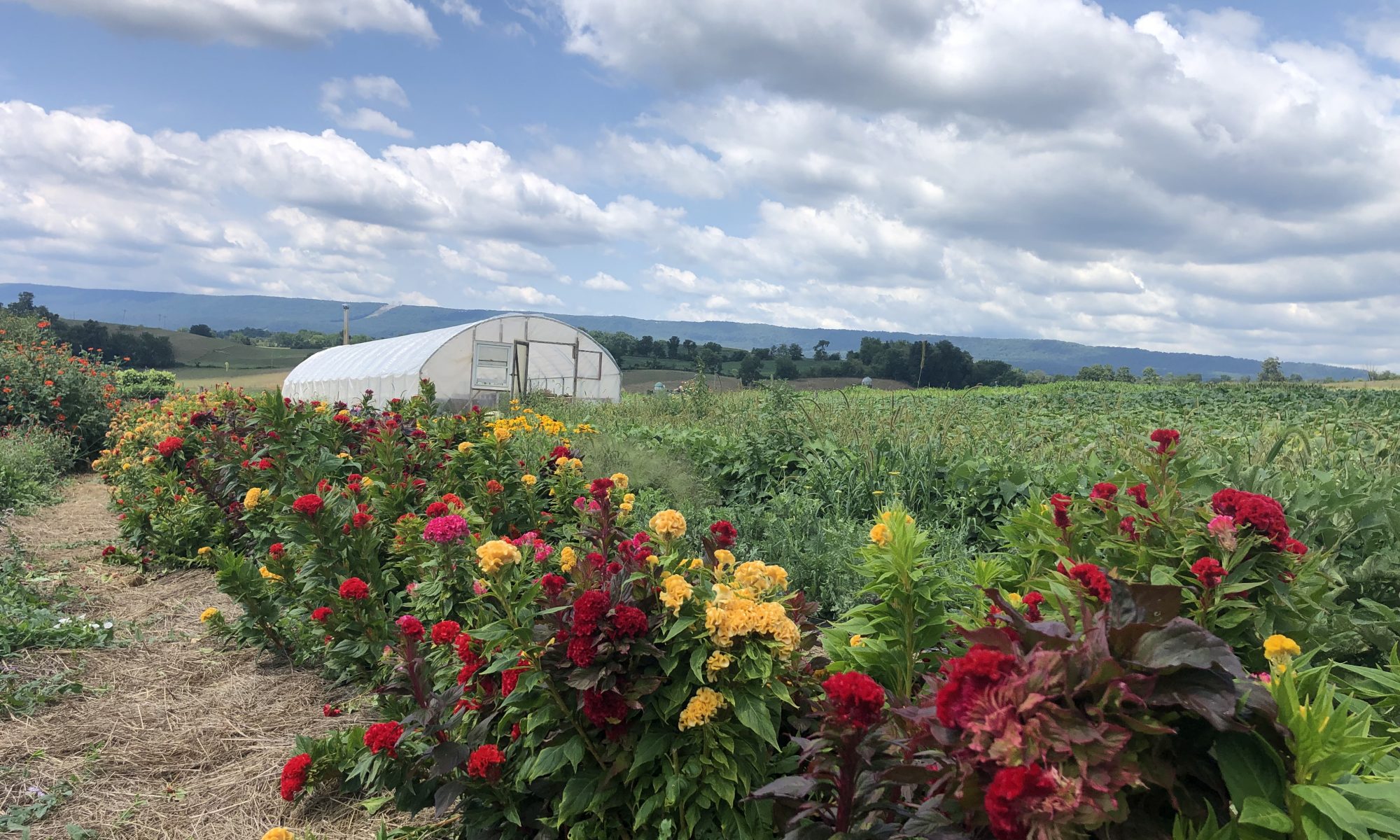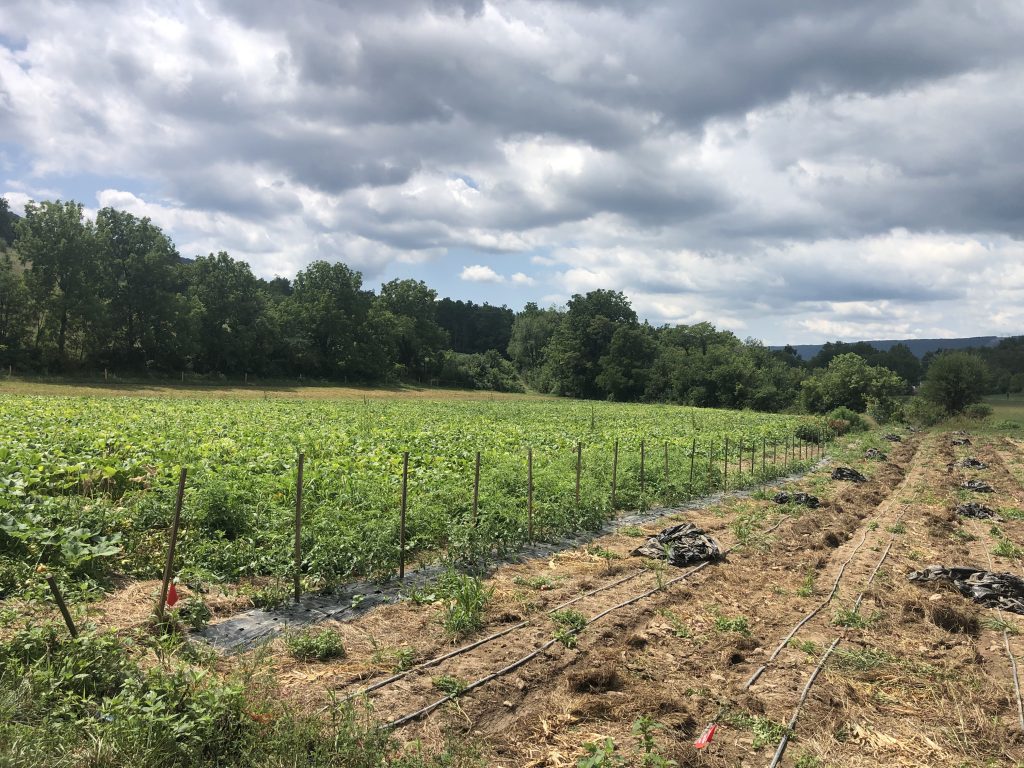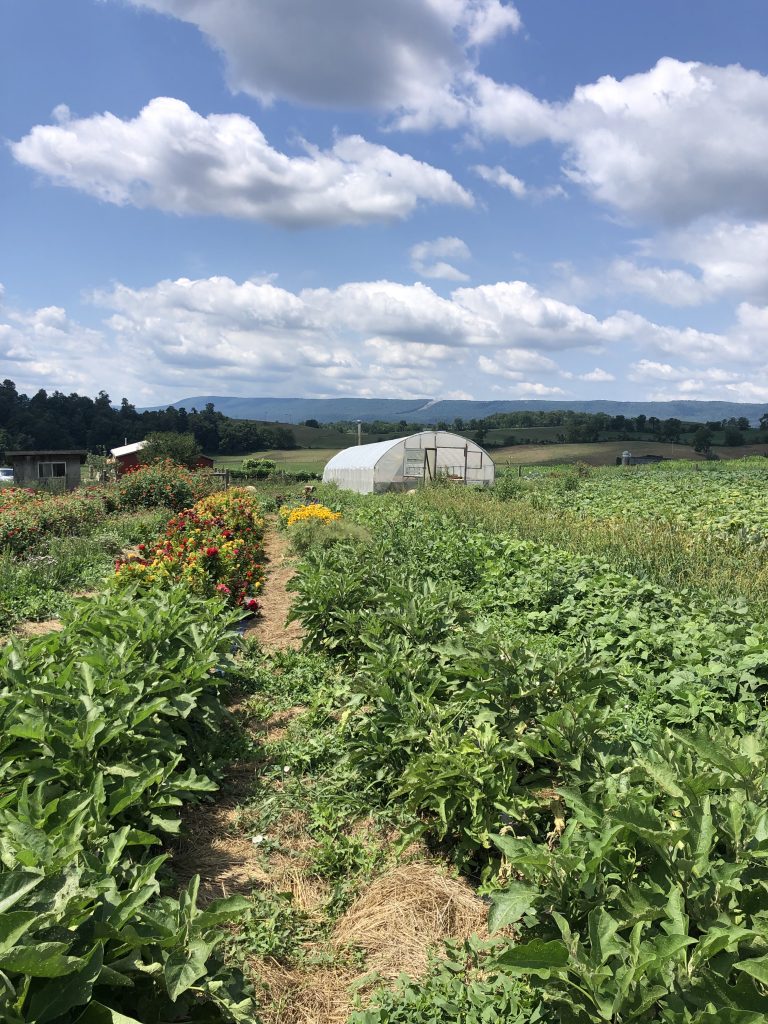I have lived in quite a few different places in my life, but most of them have been in various parts of Pennsylvania. So it felt noteworthy last Thursday when I ventured into an off-the-beaten-path part of the state that I do not think I had ever visited before, a small rural community two hours east of Pittsburgh called Tyrone.
Nestled into the northeastern part of Blair County, this hilly and well-maintained landscape struck me as a place where residents would choose to live not for any kind of easy access to bigger towns, but exactly the opposite. It felt like a place where the speed of modern life was not of primary importance. Perhaps it is no coincidence that an Amish farming community sprouted and took root here in the late 1980’s.
I was here to visit a specific group of Amish farmers that sell certified organic produce to Harvie under the name Central PA Produce Cooperative. This tight-knit group consists of about seven or eight farmers from nearby as well as a few from further east in Big Valley. Their manager, David Wengerd, is only 24 but has been involved since he was a teenager. The importance of direct communication and real face time was apparent throughout the visit, his face lit up with warmth as we began talking and he explained that Harvie is his first customer to ever make the trip to come and visit their business in person.
Also apparent was their emphasis on ingenuity for their farms and the centralized warehouse space where they aggregate, wash, and pack endless bins of beautiful produce. Examples were obvious. Each winter they flood their parking lot to create 12-inch thick ice that they cut and stack inside of their walk-in cooler areas, creating a reliable and very low-cost cooling system that they can use year-round. They also custom-built a produce washing assembly that allows them to float heavy items, like winter squash, out of picking bins and into a spray wash without having to hand touch the squash one by one. When you are growing and selling hundreds of thousands of pounds of produce, that automation is a big deal. To top it off, the water they use for their produce cleaning is filtered from a mountain stream that flows on the hillside behind their facility. Again — very resourceful.
But all of their clever systems would not matter if not for their focus on quality and consistency. There are so many steps that have to go right along the way in order to get their products to customers like Harvie. And often, it only takes a single misstep to spoil the hard work invested. That was one more reason I walked away impressed: the attention to detail that happens all while they gladly accept the limitations of having no computers or smartphones and only a single landline for their business.
And, while all decisions within the farm co-op seem to hang on what is best for the community at large, I was also curious to learn that most — if not all — of the farmers in the co-op would choose to grow organically, without chemical fertilizers, even if it was not already the niche they had carved out in the marketplace. That is not a given in Amish communities, but David told me that stewardship of the land resonates with their farmers.
Spending a day with David was a refreshing reminder of why we are working to create a strong local food economy. These farmers grow food with care and create a way of life that protects and prioritizes the health of the land and the families that work on it — buying your groceries from Harvie directly impacts their community. Hopefully you can taste just a hint of that care when you eat produce from these innovative farmers from a tucked away landscape of Pennsylvania.



